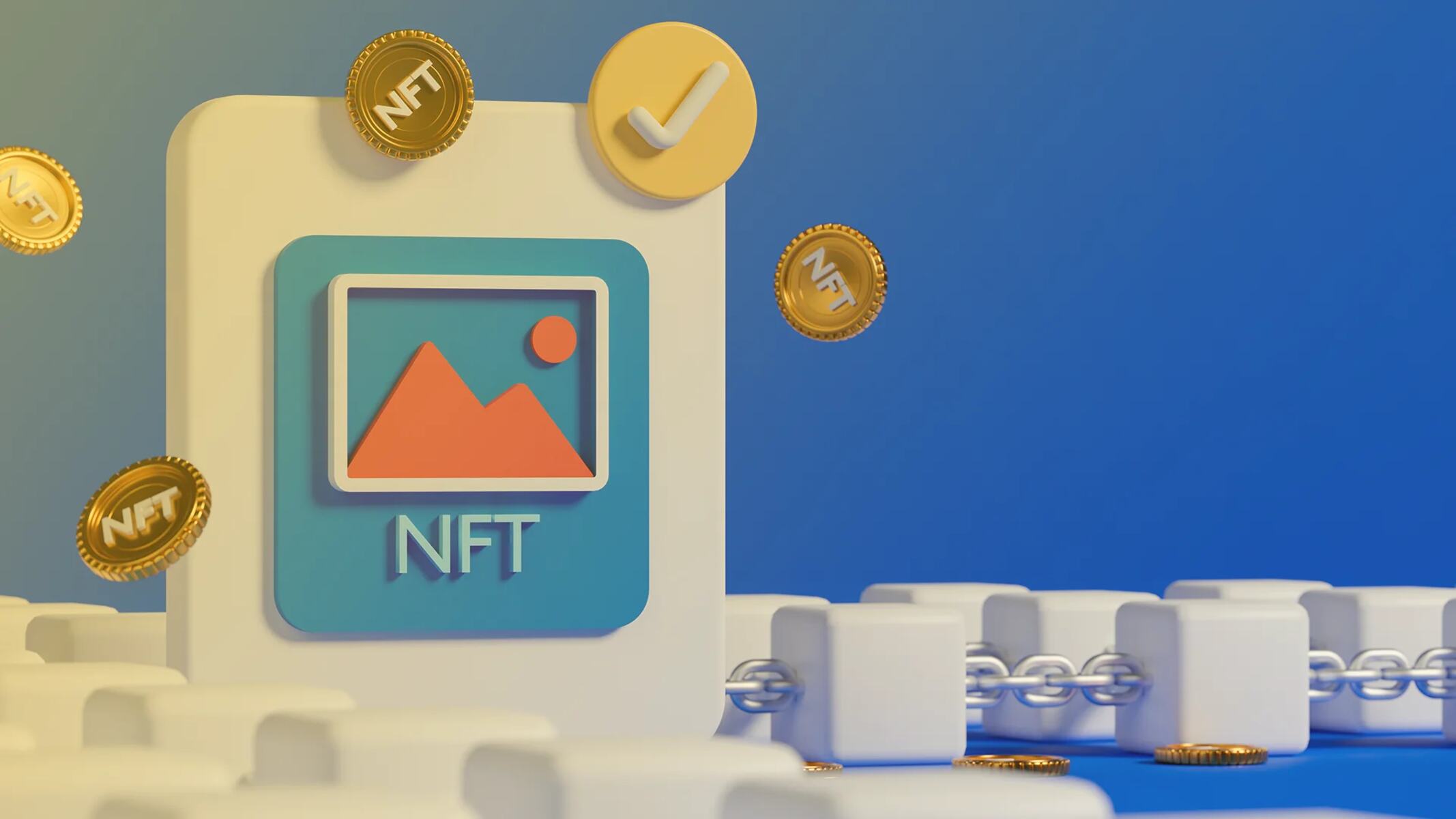Introduction
With the advancement of technology, many traditional processes are being revolutionized, and the real estate industry is no exception. One such innovation that has been making waves is the use of smart contracts for selling houses. Smart contracts are self-executing agreements built on blockchain technology, which ensure the transparent and secure transfer of assets without the need for intermediaries.
In the conventional process of selling a house, numerous intermediaries like agents, lawyers, and banks are involved, leading to complex and time-consuming transactions. Smart contracts offer a streamlined and efficient alternative to this traditional approach, eliminating the need for intermediaries and minimizing the chances of fraud or disputes.
The objective of this article is to provide an in-depth understanding of how smart contracts work for selling a house. We will explore the benefits of utilizing smart contracts, the steps involved in the process, and the role of blockchain technology in ensuring security and transparency.
By the end of this article, readers will have a clear grasp of how smart contracts can revolutionize the real estate industry and simplify the process of selling a house.
What are smart contracts?
Smart contracts are computer programs that automatically execute and enforce the terms and conditions of an agreement without the need for intermediaries. These agreements are built on blockchain technology, a decentralized and tamper-proof digital ledger that ensures transparency and security.
Unlike traditional contracts that rely on legal enforcement, smart contracts are self-executing. They are encoded with predefined rules and conditions, and once these conditions are met, the contract is automatically executed. This eliminates the need for intermediaries, such as lawyers or agents, saving time and reducing costs associated with their involvement.
Smart contracts have gained popularity due to their numerous advantages. Firstly, they provide transparency, as all the terms of the contract are stored on the blockchain, accessible to all parties involved. This transparency fosters trust and reduces the risk of fraud or manipulation.
Secondly, smart contracts are tamper-proof, as the blockchain is immutable. Once a contract is recorded on the blockchain, it cannot be altered or deleted without consensus from the network participants. This ensures that the agreed-upon terms cannot be changed unilaterally, providing security and preventing disputes.
Another significant benefit of smart contracts is efficiency. By automating the execution of contracts, parties can save time and reduce administrative tasks. Payments can be made automatically, without the need for manual intervention. This streamlines the process and increases overall efficiency.
Overall, smart contracts revolutionize the way agreements are made and executed. By leveraging blockchain technology, they offer transparency, security, and efficiency, disrupting traditional practices and opening up new possibilities.
Benefits of using smart contracts to sell a house
The use of smart contracts to sell a house brings numerous benefits to both buyers and sellers. Let’s explore some of the key advantages:
- Efficiency: Smart contracts streamline the process of selling a house by automating tasks and eliminating intermediaries. This eliminates the need for time-consuming paperwork, manual verification, and multiple signatures. The entire process, from negotiation to closing, can be executed swiftly and efficiently.
- Transparency: Smart contracts are built on blockchain technology, which provides a transparent and tamper-proof record of all the terms and conditions. This ensures that all parties have access to the same information and eliminates any misunderstandings or disputes. The transparency of smart contracts enhances trust and accountability in the transaction.
- Cost savings: By eliminating intermediaries like real estate agents and lawyers, smart contracts reduce the associated fees and commissions. Sellers can save on agent commissions, while buyers can avoid legal fees involved in drafting and reviewing contracts. This cost-saving aspect makes selling a house through smart contracts more financially attractive for all parties involved.
- Security: Smart contracts provide enhanced security compared to traditional contracts. The use of blockchain technology ensures that the contract cannot be altered or tampered with once it is recorded on the blockchain. The encrypted nature of blockchain transactions also reduces the risk of fraud, making the transaction more secure for all parties.
- Speed of transaction: With smart contracts, the entire process of selling a house can be completed faster compared to traditional methods. The automated nature of smart contracts allows for quick verification of property details, funds transfer, and completion of the transaction. This speed of transaction benefits both buyers and sellers, especially in time-sensitive situations.
Overall, the use of smart contracts to sell a house offers significant benefits such as efficiency, transparency, cost savings, security, and speed of transaction. As the real estate industry embraces technological advancements, smart contracts are poised to revolutionize the way properties are bought and sold, simplifying the process and providing a seamless experience for all parties involved.
How do smart contracts work for selling a house?
Smart contracts use blockchain technology to automate and facilitate the process of selling a house. Here’s a step-by-step overview of how smart contracts work for selling a house:
- Agreement creation: The buyer and seller come to an agreement on the terms of the contract, including the sale price, any contingencies, and the closing date.
- Contract encoding: Once the terms are agreed upon, the smart contract is encoded with the agreed-upon conditions using a programming language compatible with the blockchain platform being used.
- Verification and validation: The details of the property, such as ownership records, property title, and any liens, are verified and validated. This helps ensure that the property is eligible for sale and there are no legal issues.
- Tokenization: To represent the house on the blockchain, the property is tokenized. This involves creating a digital representation, often referred to as a non-fungible token (NFT), which contains information about the property, including its unique identifier, description, and ownership details.
- Listing and negotiation: The tokenized property is listed on a decentralized marketplace or platform where potential buyers can view and make offers. Negotiations between buyers and sellers can take place directly on the platform, allowing for transparency and efficient communication.
- Escrow and funds transfer: Once a buyer and seller agree on the terms, the buyer’s funds are placed into an escrow account or held in a digital wallet, ensuring that the funds are available upon successful completion of the contract.
- Conditions and contingencies: The smart contract is programmed to include any necessary conditions and contingencies, such as property inspections or mortgage approval. These conditions must be met before the contract can proceed to the next stage.
- Closing and transfer of ownership: Once all the conditions are met, the smart contract automatically triggers the transfer of ownership. The funds held in escrow are transferred to the seller, and the ownership of the property is transferred to the buyer.
- Verification and dispute resolution: The blockchain serves as a permanent record of the transaction, providing transparency and enabling verification of the transaction details if needed. In the event of a dispute, the blockchain’s immutable nature can be used as evidence to support resolution.
By leveraging blockchain technology, smart contracts streamline the process of selling a house, automating tasks, ensuring transparency, and reducing the need for intermediaries. This results in a more efficient, secure, and seamless transaction for both buyers and sellers.
Steps involved in using smart contracts for selling a house
Utilizing smart contracts for selling a house involves a series of steps that leverage blockchain technology to automate and streamline the transaction process. Here are the key steps involved:
- Agreement and terms: The buyer and seller come to an agreement on the terms of the sale, including the purchase price, closing date, and any contingencies.
- Smart contract creation: A smart contract is created, encoding the agreed-upon terms and conditions using a programming language compatible with the blockchain platform chosen for the transaction.
- Tokenization of the property: The house is tokenized, creating a unique digital representation, often in the form of a non-fungible token (NFT). This token contains information about the property, including its ownership details and relevant documentation.
- Listing the property: The tokenized property is listed on a blockchain-based real estate marketplace or platform, where potential buyers can view and make offers on the property.
- Negotiation and acceptance: Buyers can submit offers through the platform, and negotiation between the buyer and seller takes place directly within the smart contract. Once an offer is accepted, the contract moves to the next stage.
- Funds transfer and verification: The buyer’s funds are transferred and held in escrow or a digital wallet, ensuring they are available upon successful completion of the contract. Verification of funds and other relevant information, such as property title and ownership, is conducted.
- Meeting conditions and contingencies: The smart contract may include conditions and contingencies that must be met before the transaction can proceed. This could include property inspections, mortgage approval, or other specific requirements.
- Transfer of ownership: Once all conditions have been met, the smart contract automatically triggers the transfer of ownership. The buyer’s funds are released from escrow, and the ownership of the property is transferred to the buyer.
- Confirmation and record-keeping: The completion of the transaction is recorded on the blockchain, creating an immutable and transparent record of the transfer of ownership. All parties involved can verify the transaction details on the blockchain.
- Resolution of disputes: In the event of any disputes or disagreements, the blockchain’s transparent and auditable nature can help facilitate resolution by providing an immutable record of the transaction and the agreed-upon terms.
By following these steps, sellers and buyers can leverage smart contracts to simplify and streamline the process of selling a house. The use of blockchain technology and smart contracts ensures transparency, efficiency, and security throughout the transaction, revolutionizing the real estate industry.
The role of blockchain technology in smart contracts
Blockchain technology plays a crucial role in enabling the functionality and effectiveness of smart contracts. It serves as the underlying infrastructure that ensures the transparency, security, and efficiency of these self-executing agreements. Here’s a closer look at the role of blockchain technology in smart contracts:
Transparency: Blockchain technology provides a transparent and decentralized ledger that records all the transactions and agreements made within a smart contract. The distributed nature of the blockchain ensures that all participants in the network have access to the same information, eliminating the need for intermediaries and reducing the chances of manipulation or fraud.
Immutability: Once a smart contract is recorded on the blockchain, it becomes immutable. This means that the terms and conditions of the contract cannot be altered or tampered with without the consensus of the network participants. The immutability of the blockchain ensures that the agreed-upon rules and conditions of the contract cannot be changed unilaterally, providing a high level of security and preventing disputes.
Decentralization: Blockchain technology is decentralized, meaning that there is no single authority or central party that controls the network. Instead, the network is distributed across multiple nodes, and each participant maintains a copy of the blockchain. This decentralization removes the need for intermediaries, such as banks or lawyers, and reduces the reliance on trust in a single party.
Security: The use of cryptography in blockchain technology ensures the security of smart contracts. Each transaction and contract on the blockchain is encrypted and linked to previous transactions, forming a chain of blocks. This cryptographic security makes it difficult for unauthorized parties to tamper with or forge the transaction records. Additionally, due to the decentralized nature of the blockchain, there is no single point of failure, making it highly resistant to cyber attacks.
Automation and efficiency: Blockchain technology allows for the automation of smart contracts, eliminating the need for manual intervention. Once the conditions programmed into the contract are fulfilled, the contract is automatically executed. This automation reduces the time and effort involved in the transaction process, making it more efficient and streamlined.
Overall, blockchain technology provides the necessary infrastructure and features to make smart contracts secure, transparent, efficient, and tamper-proof. By leveraging blockchain technology, smart contracts can revolutionize various industries, including real estate, by simplifying processes, reducing costs, and enhancing trust and security.
Potential challenges and considerations when using smart contracts to sell a house
While smart contracts offer numerous benefits for selling a house, there are also some potential challenges and considerations that should be taken into account. Here are a few key factors to consider:
Technical expertise: Smart contracts rely on blockchain technology and programming languages. Implementing smart contracts requires a certain level of technical expertise and familiarity with the underlying technology. Both buyers and sellers may need assistance from professionals or experts to create, verify, and execute the smart contract properly.
Legal compliance: While smart contracts can automate and streamline many aspects of the sales process, they must still adhere to legal regulations and requirements. It is crucial to ensure that the terms and conditions encoded within the smart contract comply with local laws, property regulations, and any other applicable regulations. Consultation with legal professionals may be necessary to navigate these complexities.
Property verification: Properly verifying the details and ownership of the property is essential when using smart contracts for selling a house. Ensuring that the property information, title deeds, and any associated documents are accurate and up to date is crucial to prevent fraudulent transactions. Buyers and sellers must have a reliable system in place to verify the legitimacy and accuracy of the property information before entering into a smart contract.
Smart contract bugs and vulnerabilities: As with any computer program, smart contracts are not immune to bugs or vulnerabilities. Errors or vulnerabilities in the code of a smart contract could lead to unexpected outcomes or potential security breaches. Auditing and testing the smart contract code for potential issues is essential to mitigate these risks. Engaging with experienced blockchain developers or auditors who specialize in smart contract security can help identify and rectify any vulnerabilities.
Flexibility and adaptability: Smart contracts are designed to be self-executing and enforceable once the predefined conditions are met. However, situations may arise where parties need to make amendments or negotiate changes to the contract terms. Unlike traditional contracts, modifying smart contracts can be complex due to their immutability. It is crucial to consider the level of flexibility and adaptability needed for the specific sale and include mechanisms or clauses within the smart contract to address any potential changes or contingencies.
Adoption and industry acceptance: The adoption of smart contracts in the real estate industry is still in its early stages. The widespread acceptance and use of smart contracts by all parties involved, including buyers, sellers, banks, and government organizations, may take time. Educating all stakeholders about the benefits and implications of smart contracts is crucial for achieving broader industry acceptance.
As with any emerging technology, using smart contracts for selling a house comes with its own set of challenges and considerations. By understanding and addressing these factors, buyers and sellers can make informed decisions and leverage the benefits of smart contracts while navigating the potential complexities that may arise.
Conclusion
The utilization of smart contracts in the process of selling a house brings about numerous benefits, revolutionizing the real estate industry. By leveraging blockchain technology and automation, smart contracts offer transparency, security, efficiency, and cost savings, benefiting both buyers and sellers.
Smart contracts streamline the entire transaction process, eliminating the need for intermediaries, reducing paperwork, and automating tasks such as fund transfers and document verification. The transparency and immutability of the blockchain ensure accountability and trust, preventing fraud and disputes. Furthermore, the removal of intermediaries results in significant cost savings, making the process more financially attractive for all parties involved.
However, there are challenges and considerations to be aware of when using smart contracts. Technical expertise, legal compliance, property verification, and the need for flexibility and adaptability should be addressed to ensure a seamless experience. Additionally, wider adoption and industry acceptance of smart contracts may take time as stakeholders become more familiar with the technology and its benefits.
Overall, smart contracts have the potential to transform the real estate industry by simplifying and streamlining the process of selling a house. As technology continues to advance and more stakeholders embrace smart contracts, the benefits of transparency, security, efficiency, and cost savings will become increasingly apparent. The future of the real estate industry looks promising with the integration of smart contracts, paving the way for a more accessible, secure, and efficient buying and selling experience.

























